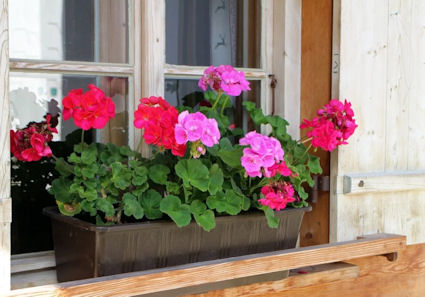Growing Great Flowers
Most every gardener strives to grow the best, most stunning flowers around, but that goal is hard to get hold of. Whether you want to raise prize-winning blooms or just have a home garden filled with of beautiful flowers, there are some things you can do in order to ensure your garden is in the best shape possible.
The chemical make-up of the soil is one of the biggest factors that contribute to the success or failure of your garden. If the soil in your planting beds is poor in nutrients, it is unlikely that your plants will thrive or produce those beautiful flowers that you want until you enrich the soil with the nutrition the plants need.
Donít make the mistake of thinking that the soil chemistry is the same all over your garden. It is important to test the soil in each area of your property that you plan to put plants, especially if the areas are away from each other. This can be important if part of your property is on a slope, or if it has been used for other things in the past.

The slope of the land and the soil type in your area are important considerations to make. A complete analysis of the soil in your yard will give you a good place to starts and help you to monitor the quality of the soil as your garden matures.
You probably already have an idea about what you want to plant in your garden, so it is important that you understand what those plants will require in order to grow and flourish. Although many types of annuals, perennials, and bulbs can grow and thrive in a broad range of soil and weather conditions, others can have special requirements for food, water, and soil conditions.
For example, if you are interested in cultivating roses in your garden, you will need to know the pH level of your soil, and adjust it if you need to. Roses are commonly acid loving plants, and therefore they will not thrive in soil with a higher alkaline level. Getting some humus and tilling it into the soil can amend alkaline soil. If the humus does not do the job, adding sulfur to the soil can raise the acidity level.
The nutrients in the soil will dictate the health and vitality of your plants and flowers. If the phosphorus and nitrogen levels, as well as the presence of other types of organic matter are not sufficient, your plants may be malnourished, and not thrive at all. Nutrients can be added to poor soil by using humus or any number of good-quality fertilizers.
Now you understand why the chemistry of your garden soil is so important in growing your ideal garden. Having the best flowers around is a big task to fulfill. Make sure that your garden soil is ready for the duty.









